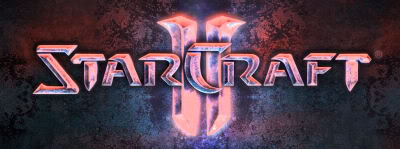Editor's note: I enjoy examining common themes when discussing books, so I'm glad that Joshua took a similar approach here with video games. Honestly, I think the industry could use a little more analysis like this. Insectoid alien horde or the inexorable communist machine? You decide. -Jay

I’m one of those people that feel that videogames contain a deeper meaning; of course, I was an English major — we think piles of rocks hide deeper meanings. So, as I click my way through Starcraft 2, my mind starts to wander while the dozens of SCVs scurry about the blue crystals. Call me McCarthy, but I believe that the primary struggle in Starcraft 2 is the battle between communism and capitalism.

Joe McCarthy didn't rock the Zerg rush
Think about it: to protect their way of life, humanity (the Terrans) are fighting an alien race (the Zerg) that swarms across the universe. Furthermore, a collective mind controls the Zerg — or at least it did until a new charismatic leader (Kerrigan) rose up to take over the party.
I also present as evidence the character traits exemplified by Jim Raynor and his crew. Each Terran exhibits strong individual values, but more importantly, Raynor and Tychus are after capital to fund their war. They will do whatever it takes to discover new mineral reserves and fill their coffers, including desecrating sacred ground and displacing native populaces. Sound familiar?
Regardless of what race you play, real-time strategy games are nothing more other than the subjection of the individual to the greater good. You don’t control one unit (an individual) against a group of enemies, but rather a whole collection of units. Consider how many units an average RTS player loses in the course of a round. This got me thinking of first-person shooters — in particular Halo.

Let's do this … for Amurrrrrica!!
Once more: a single entity controls the Flood (and to some extent the Covenant.) In the case of the Covenant, the governing body is an oligarchic/theocratic group of Prophets, whereas the Flood have Gravemind. Of course, nothing else better represents communism — or rather the fear of communism by western citizens — than the Flood: they literally consume everything in their path. Creeping communism? You bet your ass it is. Finally, the whole of humanity rests on one individual to take care of this threat — the Master Chief.
So what’s my point? We can draw a couple of conclusions, but primarily I'd say that videogames can be a great way to discover our deeper societal fears. American developers, like Blizzard and Bungie, subconsciously put the ideologies found in American culture into their games, and their enemies represent the one thing Americans historically have feared above all else: the destruction of the individual and the promotion of a collective state.
Even if you don't agree with my theory, I feel that making this kind of analysis is one method of demonstrating the depth of video games to non-gamers. Think of how long it took graphic novels to break into more mainstream culture; now, graphic novels are taught in school and turned into major motion pictures. All I’m saying is that one day, video games will be looked at as cultural documents, and the sooner that happens, the sooner people will realize it’s not just all blood and guts and a bunch of mouse clicks.
Joshua Duke is a writer and editor for Morality Points and contributor to The Program 101's gaming section. Contrary to popular belief, he has never known Joe McCarthy and bleeds red, white, and blue.



